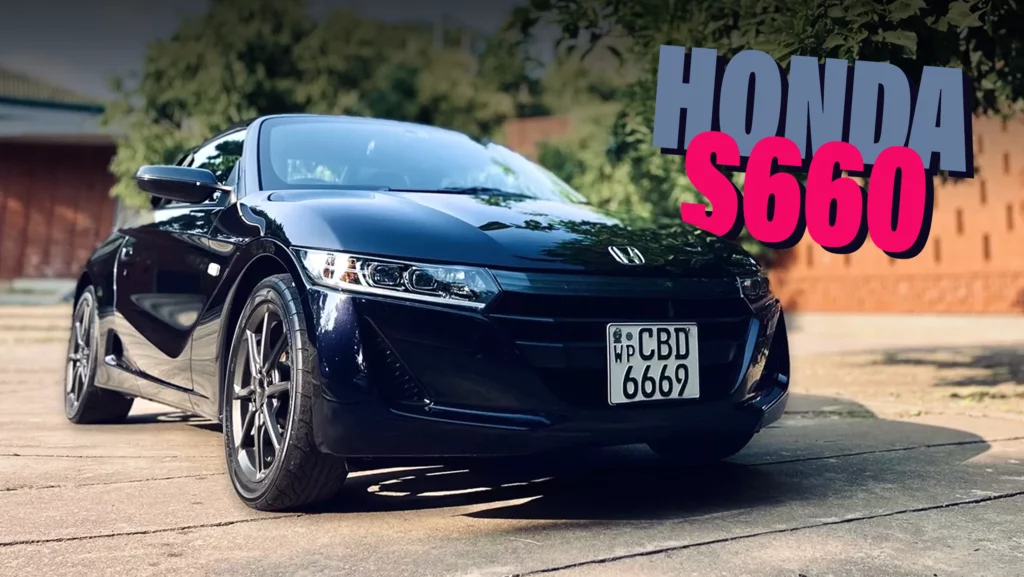
We get behind the wheel of the Japan-only Honda S660, and discover why such a car may never be produced by a mainstream manufacturer again
5 hours ago
What’s this? A new review segment?
Yep. To vary things up a little, we’ll be getting behind the wheel of some lesser-seen cars, many of which were offered strictly within Japan’s borders. While “JDM” is a term that’s often banded around with reckless abandon, we’ll do our best to limit it to cars that wouldn’t usually be found in the U.S. and Europe – of course, that rule may be bent depending on what crops up (think tuned Supra, RX-7, et al.).
This isn’t exactly a Supra, though, is it?
Well, no, it is not. It’s a Honda S660, and it’s just the kind of weird and wonderful Japanese market-only model for which this segment was created. The S660 is one of those out-of-the-box creations conjured within the Kei-car class’s strict regulations.
Related: The Honda S660 Might Be Gone But You Can Still Buy An R/C Version
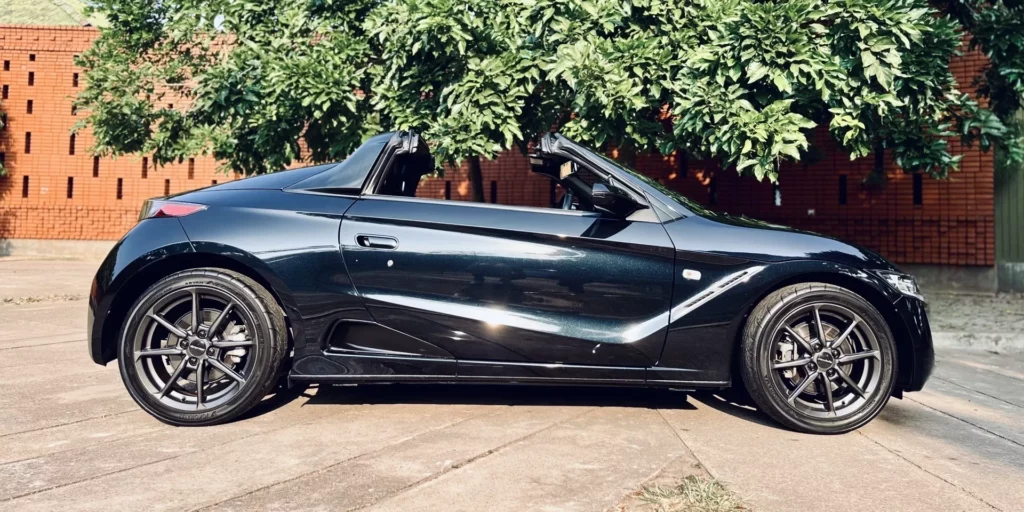
Kei Cars. Right. I’ve heard about them. What exactly are they?
I’m glad you asked. Space is at a premium in Japan’s cities, Tokyo in particular. So Kei cars are designed to take up as small a footprint as possible. They have to be shorter than 3.4 meters (133.8 inches), with a maximum height of 2 meters (78.7 inches) and a maximum width of 1.48 meters (58.2 inches).
Virtually all Kei cars have just 63 hp (47 kW / 64 PS) to play around with from a 660cc three-cylinder powerplant. Contrary to popular belief, there’s no official output restriction. Instead, the figure is more of a gentleman’s agreement between manufacturers. Don’t believe me? Well, when Caterham tried to introduce their 160S to the Kei-car class, they tried to detune their engine to match this gentlemen’s agreement. Authorities wouldn’t let them, and so it became the most powerful Kei on sale.
Quick Facts
We Digress…
Indeed, sorry about that. Anyway, most Kei cars you’ll come across are literal boxes built to fit within these regulations. But every now and again, you’ll get a manufacturer that does something rather special. Honda did it before in the ’90s with the Beat, and the S660 is a spiritual reincarnation of that model in many ways.
Right. So this is more like a “Honey I Shrunk The MX-5” Kinda Car?
You’d think so, but no. The two drive very differently – even though this is one of only a few “sportscars” that makes the Miata feel powerful. In actual fact, the S660 is closer to the NSX in concept.
Now, before you come for me in the comments, hear me out. The S660 has a mid-engine rear-wheel drive layout. The chassis is an aluminum and steel blend, which is said to be stiffer than the S2000. The wheels are staggered in diameter, the rear being an inch larger than the front. Cars are mostly handbuilt, and there’s one thing even the (modern) NSX didn’t get: the option of a six-speed manual gearbox — which also happened to be a first on a Kei.
It has 63 hp, and you’re still trying to tell me it’s a mini-supercar?
Why, yes, I am. OK, if that’s not enough, let’s look at the design. It has tiny flying buttresses and a glass panel behind the two rear lights to see the engine. Those air intakes are all functional. There’s a rear-hinged clamshell, and those short overhangs scream mini-me NSX – but smaller.
The turbocharged 660cc three-cylinder is borrowed from other Honda Kei-cars but is also handbuilt. The second and third gears are reinforced specifically for spirited touge runs. You can even lower the rear window situated between the seats to get a better earful of the turbo’s blowoff.
OK, maybe I’m getting a bit carried away. And, granted, the S660 isn’t exactly new. But seeing something so different in a world of soulless boxes and blobs is refreshing.
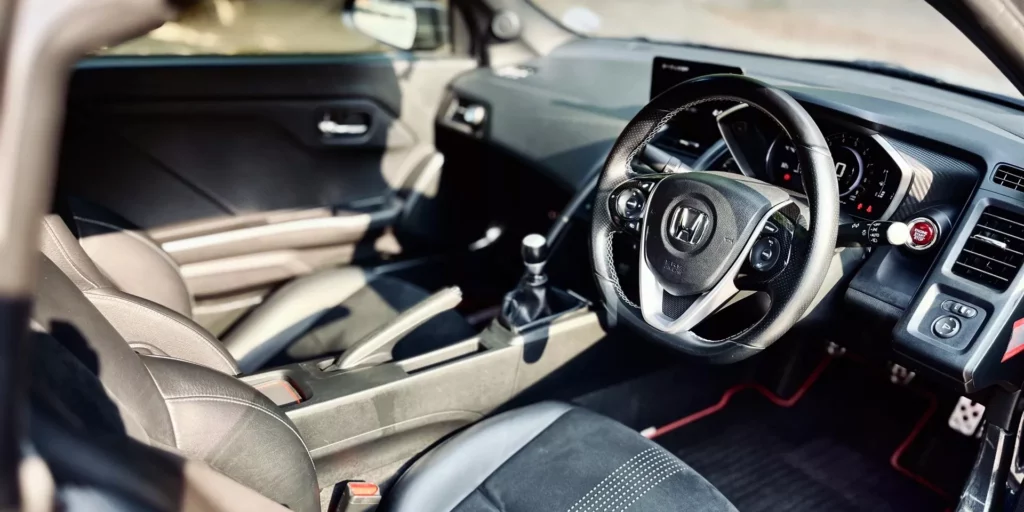
OK, so tell us what it’s like to drive
I’m not going to try to convince you that it’s fast because it’s not. The S660 was designed instead to replicate the feeling you get in a go-kart. Sure, when you’re in a go-kart, you’re not really traveling at breakneck speeds, but the way you’re made to feel compensates for that.
The inclusion of a roll-up fabric panel helps things no end, turning the Honda S660 into a targa-topped sports car. And out on the open road, you can see what they were on about. The sticky Advan tires were specially formulated for the S660, offering bags of grip several levels higher than what the chassis needs, to be honest. Handling is nimble, yet predictable. You’re not kept on edge like you would be in something with more power, but are instead given the confidence to push things just a bit more with every turn of that tiny steering wheel.
The manual gearbox has ridiculously short gears, allowing you to harness the power exactly as you want, even around town. For a turbo, the redline of 7,700 rpm is relatively high, and the torque is mainly in the upper rev range – so far, so Honda. But thanks to the short gearing, you can quickly get on the power. In fact, the engine is highly responsive. Although borrowed from the N-Box, the engine was given different turbo geometry and a deeper oil pan.
There was also a CVT option on offer, and although popular, it somewhat defeats the purpose of the S660’s concept. Gearshifts are something of a specialty in many manual Hondas, and the S660’s rachet-like action is one of the best.
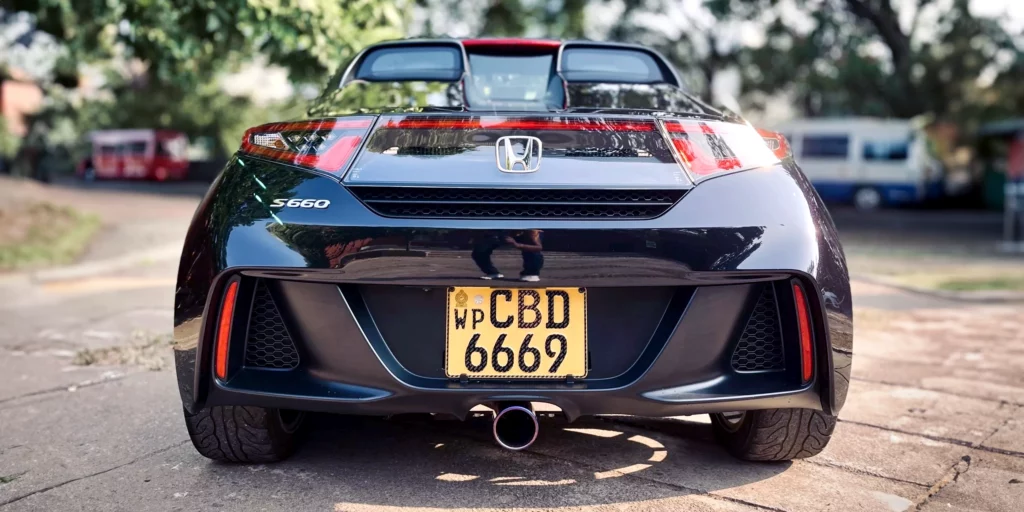
You’re gushing. Surely there have to be some downsides
Oh absolutely. This isn’t a car you’d want to take on vacation. Or to the shops. Or anywhere where you might need to carry anything larger than a paperclip.
You’d think there’d be a frunk up front, but there’s barely anything—just a small plastic box that can be used to stow the roll-up roof. As for interior space, well, there’s not a lot in that department either. You’re sure to get very close to your passenger if you do opt for company, and there are no clever hidden storage spaces.
I believe you have to adopt a motorcyclist’s approach to S660 ownership. That said, the owner tells me he managed to spend a weekend away with his wife with this miniature sportscar providing transport. However, it did require some creative packing, and I can only assume his better half highly supports his obsession.
See Also: Customer Demand Pushes Honda To Build More S660s Before It’s Killed Off
In comparison, the Daihatsu Copen, which pretty much competed with the S660 in many respects when they were on sale, offered a lot more practicality. It had a proper trunk with a surprisingly large load area even when the folding metal roof was stowed.
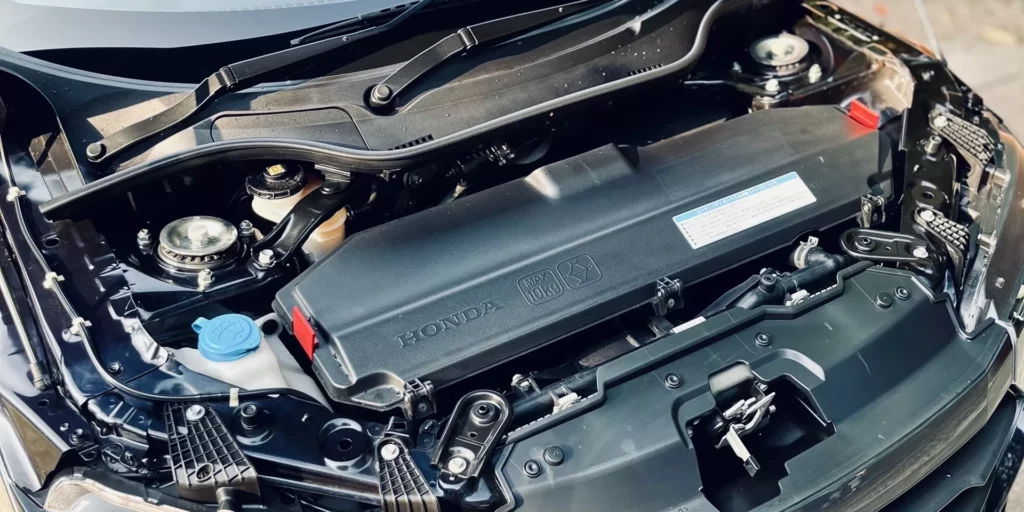
And driving such a small car around anywhere other than Tokyo?
Yeah, that’s not for the faint of heart. It’s not the width or length but just how low you sit. This is great for the car’s center of gravity and seat-of-your-pants driving but not so great for passing a semi in the outside lane at 70 mph. Similarly, I can only imagine absorbing potholes wasn’t quite so high up on the list of priorities for the S660’s design team.
But aside from this, it’s actually an excellent car for driving around a crowded city. Visibility is surprisingly good, and it’s a doddle to fit into spaces and tight parallel parking spots. Plus, there’s nothing else like it on the roads.
OK, you’ve made a good case for the S660, if not for your sanity…
Well, when you talk to yourself for these many paragraphs, you do indeed start to question that. That said, the S660 is definitely not for everyone, and that’s a good thing. Cars shouldn’t be made to appeal to all tastes. I’m not saying we should encourage companies to out-niche niches, as they’ve been known to in the past. But instead, smaller volume, fun cars for enthusiasts are precisely the kind of machines I live for. Here’s to Honda for putting the S660 into production – it’s the kind of car we may never see again.
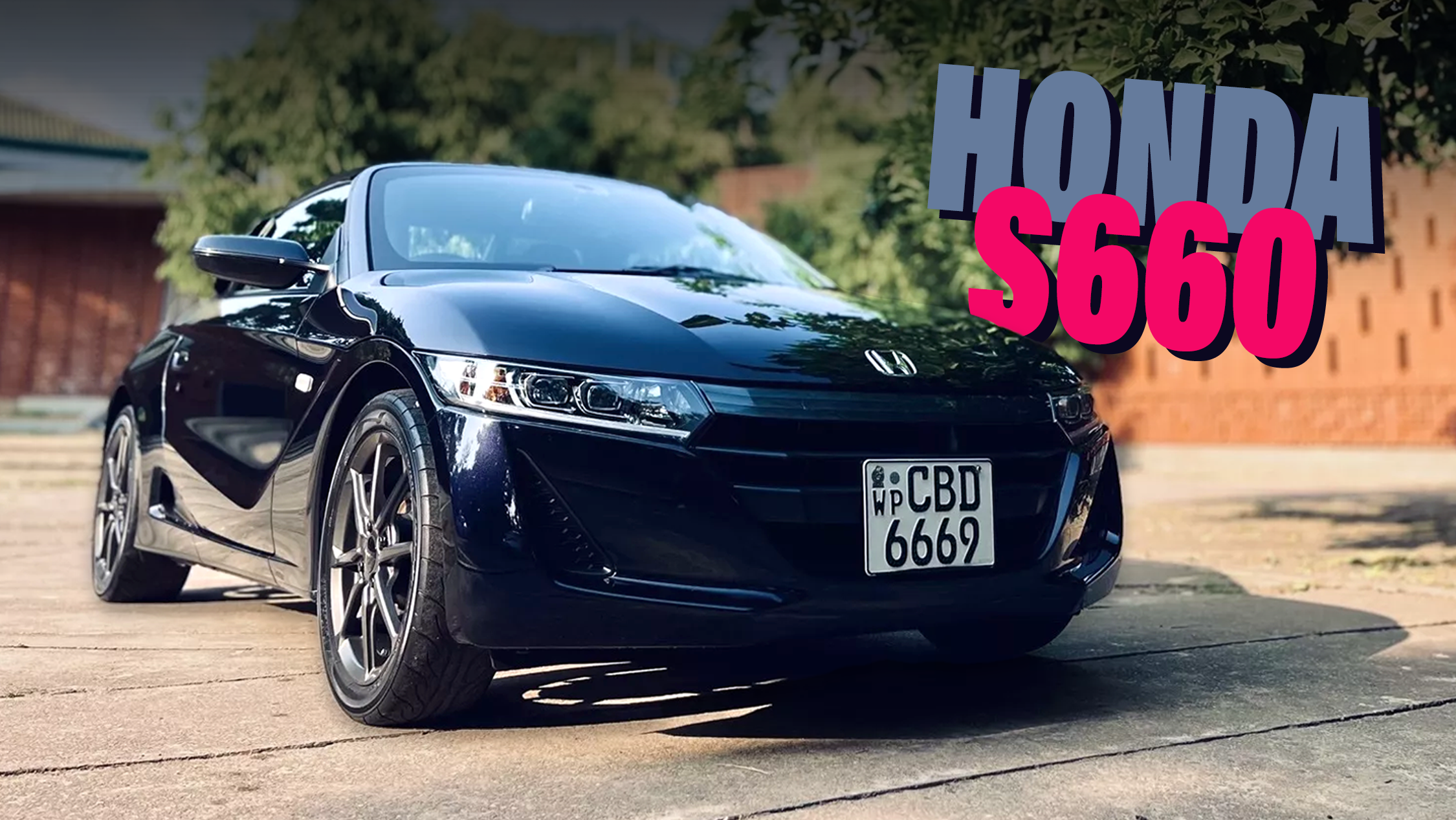
ivermectin 12mg for sale – carbamazepine 200mg without prescription buy carbamazepine cheap
order isotretinoin 10mg generic – order accutane generic zyvox 600 mg cheap
azithromycin 250mg oral – buy tinidazole 300mg for sale buy cheap bystolic
order omnacortil without prescription – buy progesterone 100mg generic buy prometrium
gabapentin tablets – itraconazole online order buy itraconazole 100 mg online cheap
buy generic lasix – furosemide 40mg generic buy betamethasone 20gm for sale
augmentin uk – purchase duloxetine generic order cymbalta 20mg pill
clavulanate uk – buy ketoconazole pill cymbalta 20mg price
tizanidine 2mg ca – hydrochlorothiazide pill order generic microzide
tadalafil 40mg sale – tadalafil 10mg usa order sildenafil for sale
buy cenforce 100mg generic – glucophage 1000mg tablet metformin generic
lipitor 80mg over the counter – buy norvasc 5mg generic generic zestril 10mg
prilosec to treat stomach – lopressor 50mg cheap oral atenolol 50mg
how to get medrol without a prescription – oral pregabalin 75mg triamcinolone order
purchase clarinex sale – buy generic claritin online buy priligy 30mg pill
brand acyclovir – buy allopurinol generic oral rosuvastatin 20mg
domperidone pills – order sumycin 250mg without prescription buy flexeril 15mg generic
motilium online order – cost sumycin cyclobenzaprine over the counter
inderal 10mg cost – inderal 20mg cheap buy methotrexate 5mg sale
warfarin tablet – order coumadin 2mg for sale how to get losartan without a prescription
buy nexium 40mg for sale – topamax 200mg for sale imitrex over the counter
levofloxacin 500mg us – order ranitidine generic ranitidine 150mg cost
order mobic 7.5mg pill – flomax ca purchase tamsulosin online
where to buy zofran without a prescription – aldactone cost buy simvastatin 10mg generic
buy valtrex 500mg generic – purchase diflucan order diflucan without prescription
order modafinil 200mg for sale modafinil 200mg over the counter modafinil 200mg sale modafinil 100mg pill buy provigil 100mg pill order generic provigil modafinil tablet
The thoroughness in this break down is noteworthy.
Thanks on sharing. It’s acme quality.
zithromax 250mg oral – buy tindamax 500mg for sale buy metronidazole 200mg pill
cheap semaglutide 14 mg – cyproheptadine 4 mg canada periactin 4 mg oral